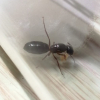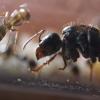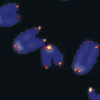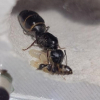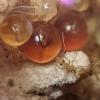IN MY OPINION, it depends on quite a few bits. Disclaimer so half of the forums doesn't f*** me up, this is all my opinion, feel free to disagree. Not saying you should follow this, not very smart to follow someone with less than 10 IQ's motives. First of all, experience level. This bit is important because if you're new you can't tell the difference between a rare and common species (I've seen people misidentify Lasius claviger for Tetramorium immigrans). It's much better for beginners to raise from queens. Kind of like how you learn how to add and subtract before getting a calculator, or learning how to write on paper before typing.
After experience it's rarity/other stuff. Let's say you're an intermediate+, like most people on the forums/discord. You know how to Identify at least to genus, usually to specific species/groups. You have one or more successful colonies and now understand that formicidae and myrmicinae aren't the same. You know probably know what species are rare and often sought after (Pheidole rhea, Camponotus castaneus), and others that are thrown away at sight (Solenopsis invicta, Lasius claviger). Honestly, it's probably fine to dig up a colony here as long as you know what you're doing. If you find a pilifera colony you probably should check that the surrounding area has a good population of it so you don't accidentally push the self destruct button on the pilifera population. However if you find a rubra colony and you've seen rubra just about... everywhere, might as well pick it up if it's a colony you want.
WITH THAT SAID, don't go collecting colonies "because you can". Make sure you have the supplies to keep them, have the knowledge, etc. I usually don't go out with the intention to find colonies, only queens. Also don't over catch, what I do is usually okay, but again I'm very idiotic so, if I find them and to the extent of my knowledge their common, sure I'll pick them up since I plenty resources at home. Now I'm realizing how long this is dragging, so I'll shut u-
Edited by Chickalo, September 17 2021 - 7:41 AM.




